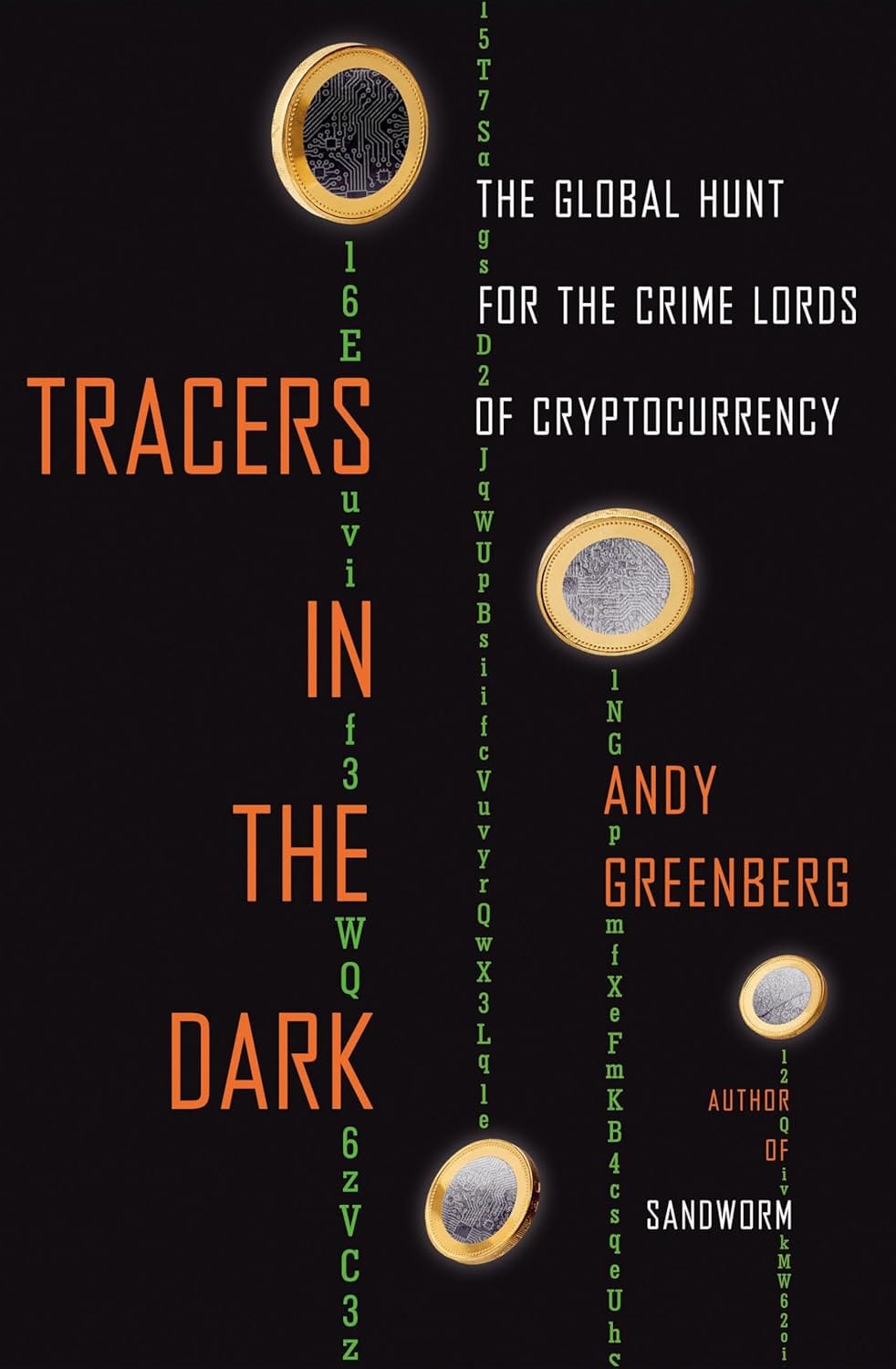Tracers In the Dark
This is a really interesting read about the history of tracing blockchain transactions.

I heard about this book on a podcast (Darknet Diaries - I think) and it sounded interesting. I was not disappointed. It is a very well-written riveting tale about tracing cryptocurrency.
The book weaves a variety of stories together. Specifically, it tells the story of the aftermath of the Silk Road takedown, Mt Gox, AlphaBay, and Welcome to Video. The stories kind of run into each other as various characters overlap multiple stories.
The Moral
The book's moral is that the internet (particularly the blockchain) is forever. When BitCoin first came out, everyone claimed "Oh it's anonymous because your name doesn't show up on the transaction register just this cryptic wallet number." That is true. However, that wallet number and all its transactions are there for the world to see in an immutable, distributed, public ledger.
At some point, that wallet number needs to interact with the real world. If you trade bitcoins for cash or vice versa at a legitimate exchange, well they have your information. If you have an online store/marketplace and someone pays you, you have to give them your wallet number. If ransomware infects your computer, in order to get paid the crooks have to give you their wallet number. If you read in the paper about a big purchase made with Bitcoin and you know when it happened and the amount, you can check the ledger and see which account it came from and went to. Once someone has a wallet number associated with a real person, they can trace all those transactions on the blockchain. There are a bunch more complicated techniques than that, but you get the idea. And no tumblers don't really hide things as well as they claim to.
Criticism
The majority of the book talks about the legitimate uses of cryptocurrency tracing. It talks about the government using the tool to track a variety of criminals: drug dealers, pedophiles, thieves, etc. It is kind of romanticized. However, there is a downside. It is a double-edged sword. It can be wielded for good or evil. It can be used to crack down on dissidents, intimidate political opponents and journalists, discriminate against minorities, etc. The last couple chapters of the book do address this and I do wish there was more. Overall everyone would do wise to heed the moral of the story - the blockchain is not anonymous.